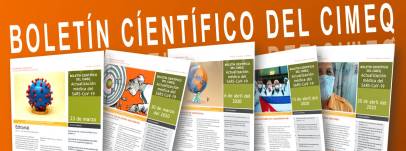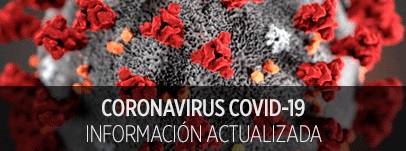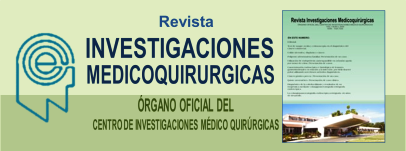El 2017 ASCO Educational Book es una colección de escritos elaborados por personal docente de la Reunión Anual de la ASCO (Sociedad americana de Oncología clínica) y líderes invitados de otras reuniones de la prestigiosa sociedad. Publicados anualmente, cada volumen destaca la investigación más convincente y el desarrollo del campo multidisciplinario de la Oncología, por lo que sirve como un recurso académico trascendental.
![]()
 Estos artículos tratan temas en áreas de la Oncología como la cirugía , la radioterapia el manejo de los síntomas, la investigación, perspectivas mundiales de la especialidad, Patología e Inmunoncología, entre otros.
Estos artículos tratan temas en áreas de la Oncología como la cirugía , la radioterapia el manejo de los síntomas, la investigación, perspectivas mundiales de la especialidad, Patología e Inmunoncología, entre otros.
Este libro es revisado por expertos en los diversos campos de la Oncología y la investigación del cáncer para garantizar la más alta integridad y calidad científica. El desarrollo del volumen está dirigido por un Consejo Editorial que supervisa todos los aspectos de la creación de contenido y su revisión.
Temas presentados en este libro (en inglés)
Addressing the Survivorship Care Needs of Patients Receiving Extended Cancer Treatment
Adoptive T-Cell Therapy for Solid Tumors
Advances in the Treatment of Advanced Extracutaneous Melanomas and Nonmelanoma Skin Cancers
Advances in the Treatment of Pediatric Bone Sarcomas
Age and Sex in Non-Hodgkin Lymphoma Therapy: It’s Not All Created Equal, or Is It?
American Society for Radiation Oncology 2016 Annual Meeting: Central Nervous System Abstracts
Bench-to-Bedside Approaches for Personalized Exercise Therapy in Cancer
Best Practices and Practical Nuances in the Treatment of Gastric Cancer in High-Risk Global Areas
Beyond Alkylating Agents for Gliomas: Quo Vadimus?
Biomarker Testing for Personalized Therapy in Lung Cancer in Low- and Middle-Income Countries
Biomarkers for Checkpoint Inhibition
Bone Sarcoma Pathology: Diagnostic Approach for Optimal Therapy
Breast Cancer in the Central Nervous System: Multidisciplinary Considerations and Management
Can Cancer Truths Be Told? Challenges for Medical Journalism
Cancer Care and Control as a Human Right: Recognizing Global Oncology as an Academic Field
Can Cancer Truths Be Told? Challenges for Medical Journalism
Cancer Care and Control as a Human Right: Recognizing Global Oncology as an Academic Field
Caring for the Older Population With Advanced Lung Cancer
Challenges in Opening and Enrolling Patients in Clinical Trials
Chronic Myeloid Leukemia: What Every Practitioner Needs to Know in 2017
Clinical Pathways and the Patient Perspective in the Pursuit of Value-Based Oncology Care
Collaborating With Advanced Practice Providers: Impact and Opportunity
Current Approaches to Mantle Cell Lymphoma: Diagnosis, Prognosis, and Therapies
Data Commons to Support Pediatric Cancer Research
Deploying Immunotherapy in Pancreatic Cancer: Defining Mechanisms of Response and Resistance
Diagnosis and Treatment of Prostate Cancer: What Americans Can Learn From International Oncologists
Endometrial Cancer: Is This a New Disease?
Established and Novel Prognostic Biomarkers in Multiple Myeloma
Evolving Treatment Paradigm in Metastatic Renal Cell Carcinoma
Fertility, Cardiac, and Orthopedic Challenges in Survivors of Adult and Childhood Sarcoma
For Our Patients, for Ourselves: The Value of Personal Reflection in Oncology
Future Genetic/Genomic Biomarker Testing in Non–Small Cell Lung Cancer
Gastric Cancer in Asia: Unique Features and Management
Gastric Cancer in Southern Europe: High-Risk Disease
Global Health Initiatives of the International Oncology Community
Health Disparities and the Global Landscape of Lymphoma Care Today
Hematologic Malignancies: Plasma Cell Disorders
Higher-Level Pathway Objectives of Epigenetic Therapy: A Solution to the p53 Problem in Cancer
How Should We Intervene on the Financial Toxicity of Cancer Care? One Shot, Four Perspectives
Immunotherapy for Esophageal and Gastric Cancer
Improving Quality and Value of Cancer Care for Older Adults
Integration of Genomics Into Treatment: Are We There Yet?
Lifestyle Interventions to Improve Cardiorespiratory Fitness and Reduce Breast Cancer Recurrence
Making the Case for Improving Oncology Workforce Diversity
Managing Resistance to EFGR- and ALK-Targeted Therapies
Mastering Resilience in Oncology: Learn to Thrive in the Face of Burnout
Metabolic Alterations in Cancer and Their Potential as Therapeutic Targets
Minimizing Minimally Invasive Surgery for Endometrial Carcinoma
More Medicine, Fewer Clicks: How Informatics Can Actually Help Your Practice
Myeloma in Elderly Patients: When Less Is More and More Is More
New Classification for Central Nervous System Tumors: Implications for Diagnosis and Therapy
Novel Targeted Agents and Immunotherapy in Breast Cancer
Novel Therapeutics in Acute Myeloid Leukemia
Operable Melanoma: Screening, Prognostication, and Adjuvant and Neoadjuvant Therapy
Optimal Management of Early and Advanced HER2 Breast Cancer
Optimizing Breast Cancer Adjuvant Radiation and Integration of Breast and Reconstructive Surgery
Pain and Opioids in Cancer Care: Benefits, Risks, and Alternatives
Pancreatic Adenocarcinoma: Improving Prevention and Survivorship
Personalizing Adjuvant Therapy for Stage II/III Colorectal Cancer
Personalizing Therapy for Metastatic Prostate Cancer: The Role of Solid and Liquid Tumor Biopsies
Perspectives on the Use of Clinical Pathways in Oncology Care
Pharmacokinetic/Pharmacodynamic Modeling for Drug Development in Oncology
Practice Model for Advanced Practice Providers in Oncology
Practice-Changing Abstracts From the 2016 Society for Neuro-Oncology Annual Scientific Meeting
Precision Oncology: Who, How, What, When, and When Not?
Role of Chemotherapy and Targeted Therapy in Early-Stage Non–Small Cell Lung Cancer
Social Media and Mobile Technology for Cancer Prevention and Treatment
Social Media for Networking, Professional Development, and Patient Engagement
Standard and Genomic Tools for Decision Support in Breast Cancer Treatment
Strategies to Maximize Patient Participation in Clinical Trials
Systemic Therapy Options for Patients With Unresectable Melanoma
Systemic Therapy for Non–Clear Cell Renal Cell Carcinoma
The Current Landscape of Early Drug Development for Patients With Sarcoma
The Promise of Immunotherapy in the Treatment of Hepatocellular Carcinoma
The Road to Addressing Noncommunicable Diseases and Cancer in Global Health Policy
Tissue-Agnostic Drug Development
Value-Based Medicine and Integration of Tumor Biology
Whence High-Grade Serous Ovarian Cancer
mHealth: Mobile Technologies to Virtually Bring the Patient Into an Oncology Practice






